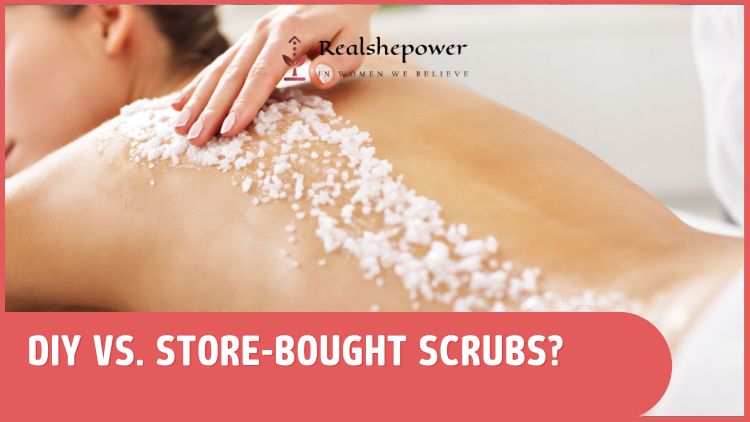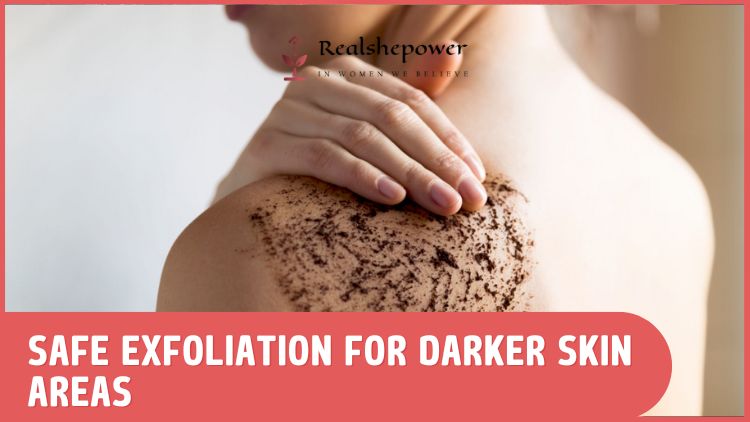DIY vs. Store-Bought: Choosing the Best Exfoliation Products for Darker Skin Tones


DIY vs. Store-Bought
Exfoliation is a crucial step in any skincare routine, especially for those with darker skin tones. It helps remove dead skin cells, revealing brighter, smoother skin and promoting better product absorption. However, choosing the right exfoliation method for darker skin can be tricky. Here, we’ll delve into the pros and cons of DIY scrubs and store-bought exfoliating products to help you decide which option is best for you.
The Allure of DIY Scrubs:
DIY scrubs offer a natural and budget-friendly approach to exfoliation. You can control the ingredients and customize them to suit your skin’s needs. Popular DIY scrub ingredients for darker skin tones include:
- Oatmeal: Gentle and soothing, oatmeal helps remove dead skin cells without irritation.
- Brown Sugar: A natural exfoliant with a finer texture, brown sugar is less abrasive than granulated sugar.
- Honey: Honey has antibacterial and moisturizing properties, making it ideal for sensitive skin.
- Yogurt: Yogurt contains lactic acid, a gentle chemical exfoliant that helps brighten the skin.
Pros of DIY Scrubs:
- Customization: You can tailor the scrub to your specific needs and skin sensitivity.
- Natural Ingredients: You have control over the ingredients used, avoiding harsh chemicals or potential allergens.
- Cost-Effective: DIY scrubs are generally cheaper than store-bought products.
Cons of DIY Scrubs:
- Inconsistency: Maintaining a consistent grit size and texture can be challenging with DIY scrubs.
- Shelf Life: Homemade scrubs have a shorter shelf life due to the absence of preservatives.
- Hygiene: It’s crucial to maintain proper hygiene when preparing and storing DIY scrubs to avoid bacterial growth.
- Limited Exfoliating Power: DIY scrubs might not be as effective as store-bought products with higher concentrations of exfoliating agents.
The Convenience of Store-Bought Products:
Store-bought exfoliating products offer convenience and a wider range of options. They are formulated with specific skin types and concerns in mind, often containing a blend of chemical and/or physical exfoliants.
Pros of Store-Bought Products:
- Convenience: Ready-made products are readily available and easy to use.
- Effectiveness: Formulated with specific ingredients and concentrations, store-bought products can be more effective for targeted exfoliation.
- Shelf Life: Commercial products have a longer shelf life due to preservatives.
- Dermatologist-Tested: Many products are dermatologist-tested and formulated to minimize irritation.
Cons of Store-Bought Products:
- Cost: Store-bought products are generally more expensive than DIY scrubs.
- Lack of Control: You don’t have complete control over the ingredients, and some might contain harsh chemicals or potential allergens.
- Finding the Right Fit: Finding a product perfectly suited to your skin type and needs can be a trial-and-error process.
Store-Bought Product Recommendations for Exfoliation on Darker Skin Tones:
Gentle Chemical Exfoliants:
- The Ordinary Lactic Acid 10% + HA: This affordable option features lactic acid, a gentle AHA that helps remove dead skin cells and brighten the complexion. It’s a good choice for beginners with darker skin tones as lactic acid is known to be less irritating than other AHAs.
- Paula’s Choice Weightless Liquid Exfoliant 2% BHA: This fragrance-free formula contains salicylic acid (BHA), which is oil-soluble and ideal for exfoliating congested pores and reducing breakouts. It’s a good option for those with darker skin tones prone to blemishes.
Exfoliating Cleansers (for daily use):
- Cetaphil Daily Facial Cleanser: This gentle cleanser contains very fine scrubbing particles that help remove dead skin cells without irritation. It’s fragrance-free and non-comedogenic, making it suitable for most skin types, including sensitive skin with darker tones.
- La Roche-Posay Effaclar Purifying Micro-Exfoliating Cleansing Gel: This cleanser contains salicylic acid (BHA) at a low concentration, making it suitable for daily use on oily or acne-prone skin with darker tones. It helps to decongest pores and remove excess oil without stripping the skin’s natural moisture barrier.
Remember: It’s important to patch test any new product before applying it to your entire face or body. Discontinue use if you experience any redness, irritation, or burning sensation.
Choosing the Right Exfoliation Products for Darker Skin Tones:
Here are some key factors to consider when choosing exfoliation products for darker skin tones:
- Ingredient List: Look for gentle chemical exfoliants like AHAs (lactic acid, glycolic acid) or BHAs (salicylic acid). Avoid harsh physical exfoliants like walnut shells or apricot pits that can irritate sensitive skin.
- Product Formulation: Choose products specifically formulated for sensitive skin or darker skin tones. These are less likely to contain irritating ingredients and might be formulated with additional brightening or soothing components.
- Brand Reputation: Opt for reputable brands known for their quality ingredients and commitment to inclusivity. Look for brands that cater to a diverse range of skin tones and offer products specifically designed for darker skin.
Finding the Perfect Balance:
Ultimately, the best approach to exfoliation for darker skin tones might involve a combination of DIY and store-bought products.
- Use a gentle DIY scrub once or twice a week for a light exfoliation.
- Use a trusted store-bought product with AHAs or BHAs for a more targeted and effective exfoliation.
- Always patch test any new product on a small area of your inner arm before applying it to your face or body.
Remember: Consistency is key! Regular exfoliation will help maintain brighter, smoother, and more even-toned skin. By carefully considering the pros and cons of DIY and store-bought products and focusing on gentle, effective ingredients, you can create a personalized exfoliation routine that works best for your darker skin tone.
Safe Exfoliation Hacks for Darker Body Areas: Reveal Brighter, Smoother Skin

You can now write for RSP Magazine and be a part of the community. Share your stories and opinions with us here.
